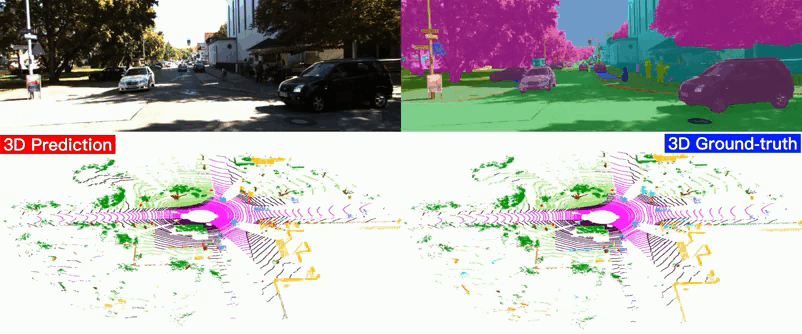Benchmarking the Robustness of LiDAR Semantic Segmentation Models
When using LiDAR semantic segmentation models for safety-critical applications such as autonomous driving, it is essential to understand and improve their robustness with respect to a large range of LiDAR corruptions. In this paper, we aim to comprehensively analyze the robustness of LiDAR semantic segmentation models under various corruptions. To rigorously evaluate the robustness and generalizability of current approaches, we propose a new benchmark called SemanticKITTI-C, which features 16 out-of-domain LiDAR corruptions in three groups, namely adverse weather, measurement noise and cross-device discrepancy. Then, we systematically investigate 11 LiDAR semantic segmentation models, especially spanning different input representations (e.g., point clouds, voxels, projected images, and etc.), network architectures and training schemes. Through this study, we obtain two insights: 1) We find out that the input representation plays a crucial role in robustness. Specifically, under specific corruptions, different representations perform variously. 2) Although state-of-the-art methods on LiDAR semantic segmentation achieve promising results on clean data, they are less robust when dealing with noisy data. Finally, based on the above observations, we design a robust LiDAR segmentation model (RLSeg) which greatly boosts the robustness with simple but effective modifications. It is promising that our benchmark, comprehensive analysis, and observations can boost future research in robust LiDAR semantic segmentation for safety-critical applications.
PDF Abstract




 ImageNet
ImageNet
 KITTI
KITTI
 SemanticKITTI
SemanticKITTI
 SemanticPOSS
SemanticPOSS